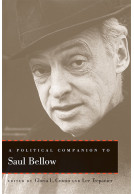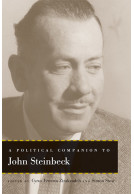Google Books previews are unavailable because you have chosen to turn off third party cookies for enhanced content. Visit our cookies page to review your cookie settings.
Detroit And The "Good War" (Hardback)
The World War II Letters of Mayor Edward Jeffries and Friends
Imprint: University Press of Kentucky
Pages: 336
Illustrations: illus
ISBN: 9780813119748
Published: 31st October 1996
Script Academic & Professional
Pages: 336
Illustrations: illus
ISBN: 9780813119748
Published: 31st October 1996
Script Academic & Professional
This book will be reprinted and your order will be released in due course.
You'll be £32.00 closer to your next £10.00 credit when you purchase Detroit And The "Good War". What's this?
+£4.99 UK Delivery or free UK delivery if order is over £40
(click here for international delivery rates)
Order within the next 5 hours, 11 minutes to get your order processed the next working day!
Need a currency converter? Check XE.com for live rates
(click here for international delivery rates)
Order within the next 5 hours, 11 minutes to get your order processed the next working day!
Need a currency converter? Check XE.com for live rates
Edward J. Jeffries Jr., was elected mayor of Detroit in 1937 and for a decade led the city through a period of race riots, union turmoil, and unprecedented growth. Jeffries's circle of friends was made up primarily of newspaper reporters who shared his interests and lifestyle. Devoted to family, they nevertheless worked long hours, smoked heavily, drank moderately, and gambled often in their running card games of gin and poker.
After Pearl Harbor, Jeffries watched his closest friends, most twelve to fourteen years his junior, enlist in the armed forces. Voracious letter writers, over the next four years they shared with one another their innermost hopes and fears. They told stories about Gen. George S. Patton, the surrender of Japan, of commanding African American soldiers during the Normandy invasion, and the battles on the home front in the heart of Detroit, the "Arsenal of Democracy."
These letters present a candid portrait of the intellectual and political leadership of Detroit -- and America. These men were confident in their values, aware of their responsibilities, and logical in their actions as they helped forge the weapons that turned back the fascist threat to democracy. Their letters also reveal a level and kind of male camaraderie seemingly lost in the depersonalized, technocratic society of the postwar era. As such, this work provides a more complete understanding of how Americans reacted to -- and were changed by -- the "Good War."
Other titles in University Press of Kentucky...















